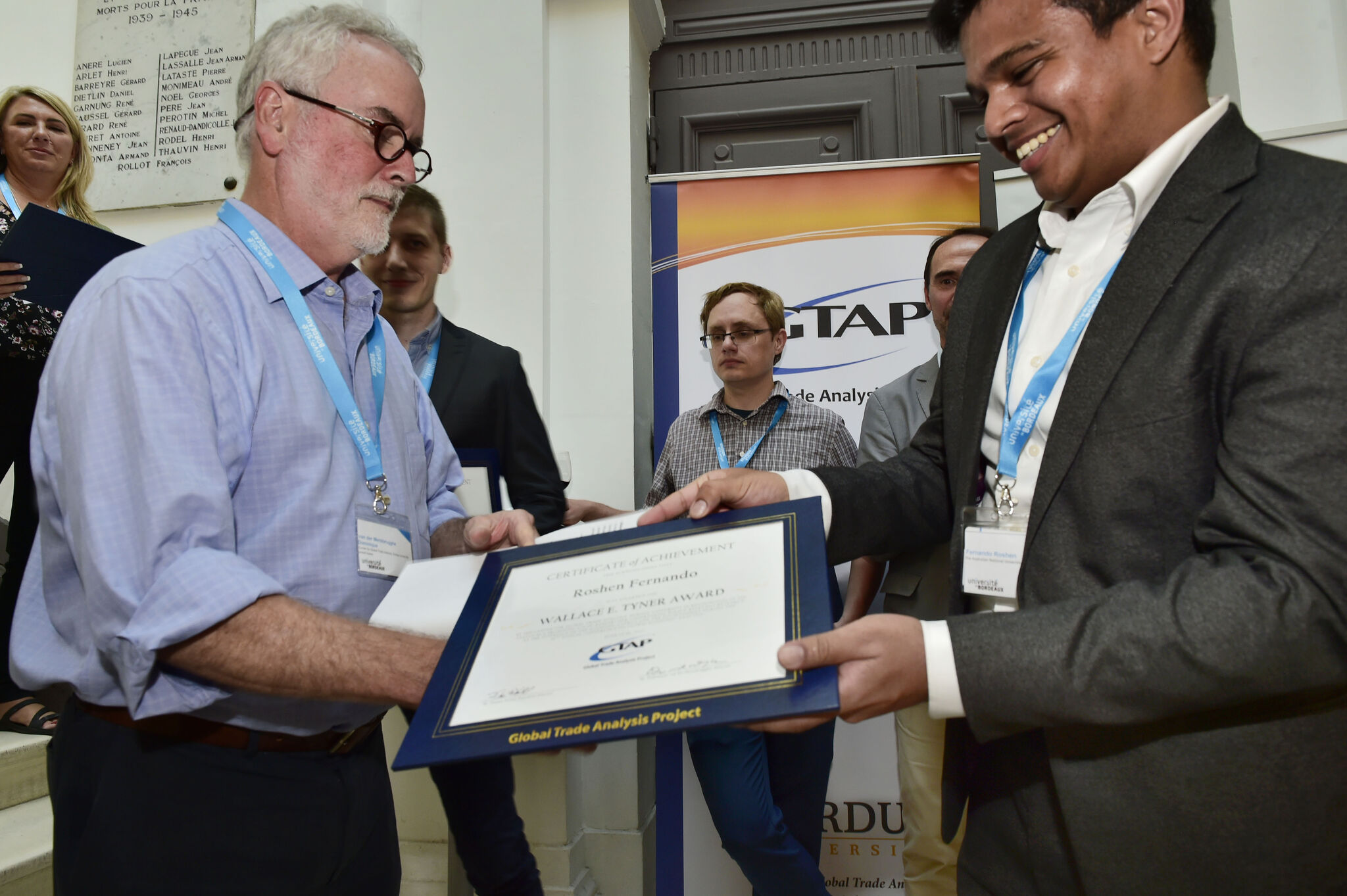
CEPAR PhD Candidate Roshen Fernando has received the Wallace E. Tyner Award from the Global Trade Analysis Project of Purdue University for his work on the economic impacts of physical climate risks on agriculture and energy.
The Award recognises promising emerging researchers undertaking policy-relevant research at the intersection of the economy, energy, and the environment.
Roshen Fernando is a CEPAR PhD candidate in Economics at the Centre for Applied Macroeconomic Analysis (CAMA) of Crawford School of Public Policy, the Australian National University.
He is mainly interested in utilising multidisciplinary perspectives to formulate policy solutions to complex challenges the humanity faces. His PhD focuses on integrated modelling of infectious diseases, particularly COVID-19, antimicrobial resistance and climate change.
Roshen Fernando’s work with CEPAR Chief Investigator Professor Warwick McKibbin, on the global economic impacts of COVID-19, has been cited in over 3,500 academic publications, the Global Economic Prospects June 2020 report by the World Bank and in international media including Bloomberg, The Guardian and The Economist. The Australian Research Council recognised their work in its Making a Difference 2020-21 report.
His work with CEPAR’s Professor Warwick McKibbin and Dr Weifeng Liu on the global economic impacts of climate change has been cited in a recent White Paper by the US Council of Economic Advisers and Office of Management and Budget. As part of his internship at the IMF Monetary and Capital Markets Department, he has modelled the economic impacts of physical climate risks on a global multisectoral sample of 59,554 firms.
His latest work with Professor McKibbin on a strategy to model the economic consequences of antimicrobial resistance is accessible from the Brookings Institution.

Image: Roshen Fernando (right) receives the Wallace E. Tyner Award from the Global Trade Analysis Project of Purdue University
